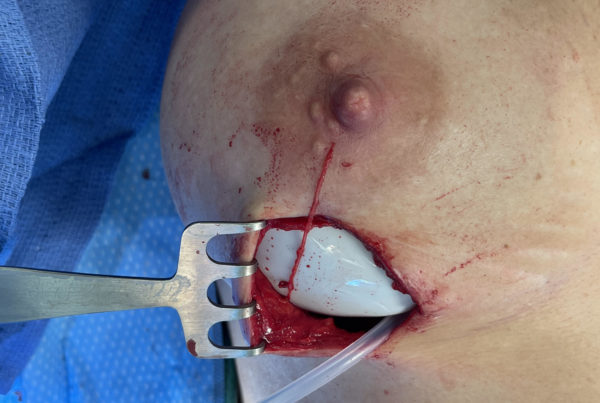I was recently asked why some people require more than one operation to obtain optimal relief. A great question and one with a multi-part answer. Let me try to break it down in the next few paragraphs. Let me preface these remarks by stating that what I write below is my opinion only and how I approach patients, but should not be considered dogma. While a number of colleagues also use this approach, it is not necessarily shared by every peripheral nerve surgeon.
In situations where there are many nerves that will require surgical intervention to achieve an optimal result, there are a number of reasons why I prefer to stage the operations. The first is that in many cases, patients often say that one area usually flares up first and when very severe or unable to be controlled, causes the headache and discomfort to spread to other areas. For example, s/he will state that their neck gets tight, they get occipital headache pain and if the medication is unable to help, the headache spreads to the temples and forehead. In these particular cases, a reasonable assumption would be that the occipital area is triggering the frontal and temporal headaches. Therefore, theoretically, if the occipital nerves are appropriately addressed, with time and healing, those triggering nerves should calm down such that the frontal and temporal areas are only triggered infrequently and hopefully to a much lesser degree. In other words, if you can remove the fuse, the dynamite stick will never explode. Stated differently, an operation to address the frontal and temporal nerves may never be required. Even if this patient continues to have some degree of headaches, these headaches may be so infrequent and/or relatively mild such that they feel the remaining symptoms are easily manageable and don’t want another operation. As I’ve said in prior posts, no one should tell you whether or not you should live with whatever pain you have. Doing so is making a value judgment – only the patient can and should make that determination.
Secondly, let’s assume that a person has the appropriate operation over the occipital nerves and has a successful outcome with respect to their posterior headaches, but the temporal and frontal headaches persist even after several months of recovery. In those cases, while another operation may be required to address the temporal and frontal nerves, there is even more reason to believe that the second procedure is likely to be successful. The converse is also true, however, in that if the occipital procedure is performed correctly and for the right indications, but yields no result, I would wonder whether or not a temporal/frontal procedure would be indicated. In other words, I would be less confident that surgical intervention in those areas would be successful if the same approach was unsuccessful over the occipital area. Therefore, staging an operation has the potential to give you information about whether or not a second procedure will be helpful. If the chances for a successful outcome are felt to be lower than one might hope, avoiding an operation would also mitigate the possibilities for complications, which can occur with any procedure.
A third reason for staging these operations relates to safety. While I obviously agree that neuralgia (occipital or trigeminal branch) is a significant medical problem, these operations are elective. Therefore, the most important thing we can do for the patient is given them a safe operation and try to minimize complications while maximizing the potential for a successful outcome. From a technical standpoint, the longer a surgical procedure takes, the greater the chance for complications or issues arising from anesthesia. While long operations can certainly be done safely, when it comes to elective surgery, the more efficient a procedure can be the better. Therefore, if I had a choice between one 8-hour operation or two 4-hour operations, I would choose the latter because there is likely a lower risk for deep vein thrombosis (blood clots in the legs that can embolize), the need for an in-patient stay, post-operative nausea and other anesthesia-related issues.
A fourth reason for staging operations has to do with recovery. In my opinion (and as many of my patients will attest), one of the hardest parts of the surgical experience is the post-operative recovery period which often has many ups and downs apart from the immediate, peri-operative surgical discomfort. With respect to the latter, if one had incisions on the front, the sides and the back of the head on both sides, I could only imagine how uncomfortable the whole head would feel. For example, aside from discomfort throughout the head, I have often wondered how these patients rest at night since sleeping on any portion of the scalp would likely result in discomfort. Rest post-operatively is critical and lack thereof is potentially problematic. In addition, as decompressed or transected nerves are manipulated in the operating room, the normal, post-operative inflammation can lead to many nerve-related symptoms which, if they occur all over the scalp as opposed to just posteriorly or over the temples, is likely to be quite uncomfortable. Greater degrees of discomfort often lead to increased opioid use which, as many people will agree, can lead to a whole host of other issues such as constipation, cognitive impairment (e.g., sedation), nausea, etc.
One last comment: I don’t use any one of these contra-indications in isolation. They are all considered together as part of the overall clinical impression when I go over a patient’s records, examine him/her and perform whatever diagnostic maneuvers are necessary. It is for these reasons among many others that I feel a consultation with a peripheral nerve surgeon is important when deciding if surgical treatment (whether decompression/neuroplasty or neurectomy/muscle implantation) is appropriate. I also believe that among the many questions patients should ask their potential surgeons is about their philosophy regarding surgical intervention. As always, I hope that these thoughts are helpful.





